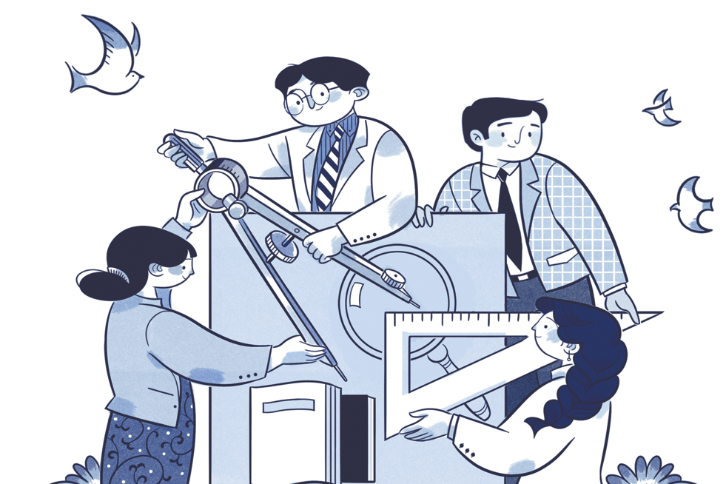Why do Chinese people trust their government?

On September 8, the United Nations Development Programme released on its official website the latest edition of The Human Development Report. The report's researchers rated 191 countries and regions on several dimensions including healthcare, education systems and living standards. The report showed that in 2021, nine out of every 10 countries (regions) saw living conditions deteriorate. In stark contrast, China's ranking rose.
The Human Development Report has been published since 1990. From 2015 to 2021, China's ranking went up by 11 places.
In 2022, the combined impacts of multiple challenges such as geopolitical conflicts, recurring outbreaks of COVID-19, and climate change have put the world economy under pressure, and China's economy has also faced risks and shocks. However, at the annual meeting of the World Economic Forum held in Davos, Switzerland, in May 2022, many experts remained optimistic about China's economy, believing that its long-term positive fundamentals remained unchanged and its potential was strong and resilient. Gita Gopinath, the first deputy managing director of the IMF, said that China remained one of the important engines of world economic growth, and that China's economic growth would have an impact on global trade and the growth prospects of the rest of the world.
The 2022 Beijing Winter Olympic Games concluded successfully on the evening of February 20. At a press conference on February 18, IOC President Thomas Bach praised the Chinese people for embracing the Games and providing an "experience of excitement, warmth, hospitality, and friendliness". "The closed-loop system has been a great success, with an infection rate of 0.01 percent, and it has been one of the safest places on the planet, if not the safest," said Bach."This is a great achievement…The message to the world is that, if everybody is respecting the rules in solidarity, you can even have such a great event like the Olympic Games under the terms of a pandemic."
Behind the "safe and comfortable" event was the close collaboration of everyone involved. The efficient organization, strong technological support, selfless medical staff, and the hard-working volunteers, all showed the strong governance ability of the Chinese government and its "people-oriented" principle.
The "safe and comfortable" Winter Olympics was a microcosm of Chinese social life.
Over the past two years, China has been applying a pragmatic approach in finding a balance between fighting Covid-19 and developing economy, hoping to maximize the effect of disease prevention and control with the minimum cost.
Malcolm Clarke, a British director living in China and two-time Academy Award winner for Best Documentary Short Film, said, in China, the whole nation fights as one when it wants to achieve something, which is incredible when measured with Western standards.
China is practicing democracy in its own way. The true meaning of people's democracy lies in finding the largest common ground of the whole society's wishes and demands through consultations with the people.
In China, democracy permeates people's daily life. It is down-to-earth and represents unique "Chinese wisdom".
People's participation in top-level decision-making
Just after the Chinese New Year in 2022, citizen representatives from Hongqiao subdistrict in Changning district of Shanghai started to "give their opinions to the government". It had been seven years since Hongqiao subdistrict began seeking public opinions on legislative and community affairs from representatives of citizens and institutions. As early as 2015, the Legislative Affairs Commission under the Standing Committee of the National People's Congress established the first community-level legislative contact point at Hongqiao subdistrict.
Zhu Guoping, a NPC delegate, is an intermediary of the community-level legislative contact point based at Hongqiao subdistrict. When the NPC Standing Committee was selecting contact points for community-level legislation in Shanghai, it was she who strongly recommended Hongqiao subdistrict. The Gubei community under the subdistrict is home to residents from more than 50 countries and regions, perfectly representing Shanghai as an "international community".
Behind a community-level legislative contact point are more than 310 intermediaries coming from all walks of life. The contact points cover 16 neighborhoods and 50 institutions within the subdistrict. Once the intermediaries receive their survey questions, they solicit opinions from the public through letters, interviews, and forums. For every new draft of law, at least four forums are held.
The community-level legislative contact point has become a "direct access" for people to participate in legislation. "With the establishment of the contact points, the NPC Standing Committee can directly hear the real community voices. Many of the suggestions made by residents are adopted. We listen to the people's voices, meet their demands, and protect their rights and interests. This is a big step forward in our legislation," said Zhu Guoping.
Connected at one end to China's supreme state authority and the other to the community, the legislative contact point is a good example and a microcosm of advancing whole-process people's democracy.
According to the Legal Affairs Commission of the NPC Standing Committee, the first four community-level legislative contact points were established in 2015. The figure rose to 10 in 2020 and 22 in 2021, covering 21 provinces (autonomous regions and municipalities directly under the Central Government).
Driven by practices at the national level, legislative contact points set up by local governments have increased, greatly promoting the depth and breadth of public participation in the national legislation. By August 2021, the community-level legislative contact points of the NPC Standing Committee had solicited more than 6,700 opinions and suggestions on 115 draft laws and annual legislative plans.
Community-level legislative contact points form a closed loop of the democratic decision-making process—they widely mobilize and inform the public of legislative motions in advance, serve as a platform for community opinions to be fully expressed during the legislative process, and provide timely feedback afterwards. They reflect China's whole-process democracy.


































